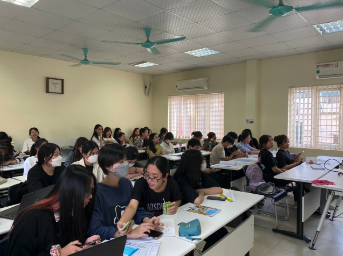Climate change and environmental pollution from plastic waste is one of the current challenges facing many countries around the world. To solve the problem of plastic waste, the development and application of new initiatives based on the polluter pays principle or the principle of collecting and recycling plastic waste in proportion to the amount of product used. Packaging has been applied in many countries. In Vietnam, in 2020, the National Assembly of Vietnam passed the Law on Environmental Protection, which stipulates very specific regulations on the responsibility to recycle used packaging with a mandatory rate based on volume or quantity. product packaging that the manufacturer puts on the market. Extended Producer Responsibility (EPR) is an environmental policy approach whereby the responsibility of the producer of a product is extended to the disposal stage of the product’s life cycle. EPR is considered as a tool in solid waste management and is evaluated as a driving force in promoting the circular economy. In Vietnam, according to the roadmap to 2024, there are 6 groups of industries that are required to carry out recycling according to EPR principles, including: batteries and accumulators; electrical and electronic; tires; lubricants; cars and motorcycles and finally packaging.
Bottles and jars made from plastic such as soft drink bottles (PET bottles) and milk and juice containers (UBC-Used Beverage Carton) belong to the group of packaging in 6 industry groups that are required to implement EPR in Vietnam from January 1, 2024. Therefore, to prepare for the official application of EPR, many manufacturers or specifically a Vietnam Packaging Recycling Alliance has been established with the initial participation of 19 members. develop strategies and plans to recover and recycle the percentage of packaging required by law.
Implementation partner
With the current number of students, along with the frequency and level of student use of bottles is relatively low, so the group is expected to coordinate with the Youth Union, the student unions VNU-affiliated school to set up plastic bottle collection station. Above all, the group will coordinate with the Clubs in the school to set up garbage collection stations at points in the school.
Critical objectives
General objective: to build a pilot model of plastic waste collection from which to calculate the receiving/recovery load to give recommendations to manufacturers in choosing the optimal locations for recycling. recycled packaging, and the aimed goals:
- Analysis of consumer behavior of single-use plastic products within;
- Communication and training for students to reduce the use of single-use plastic products and to classify and dispose of plastic waste in the right areas (collection stations);
- Analyze and calculate the load of plastic packaging (bottles, jars) received at the collection stations by week and month, thereby giving recommendations to manufacturers on the location of the collection station to collect maximum amount of plastic waste. Even when the project ends, the process will still have positive long-term effects.
Economic efficiency
- Production efficiency: With convenient design, the receiver station can operate on 24/7, will be located at several points in the school.
- Allocative efficiency: Once the receiving station is set up in schools, it will create a lot of benefits for students and residents. Since then, expanding the construction of automatic plastic waste collection machines, expanding the scale at road sections.
Scores of success and failure of the project
The success of the idea: The idea that is given meets the original purpose, is highly practical, suitable for the community, and helps to raise awareness for the school’s students in limiting use. and single-use plastic waste, and the project results will be a case study to help businesses choose the optimal points to collect plastic waste to contribute to the process of implementing EPR in Vietnam. Unsuccessful point of the idea: During the implementation process, the team wondered about financial issues as well as calling for investment capital for the project.

Authors:
Tran Dinh Minh1,*, Bui Thi Dieu Linh1, Nguyen Minh Phuong2, Nguyen Hai Dat1, Nguyen Dinh Le Duy3, Eddie Shih4
1VNU – University of Education, Vietnam National University, Hanoi, Vietnam
2Ministry of Agriculture and Rural Development Vietnam, General Directorate of Forestry
3Chu Van An High School, Hanoi, Vietnam
4 International Development, World Invention Intellectual Property Associations, Taiwan
* Corresponding author: Tran Dinh Minh (dinhminh2609@gmail.com)